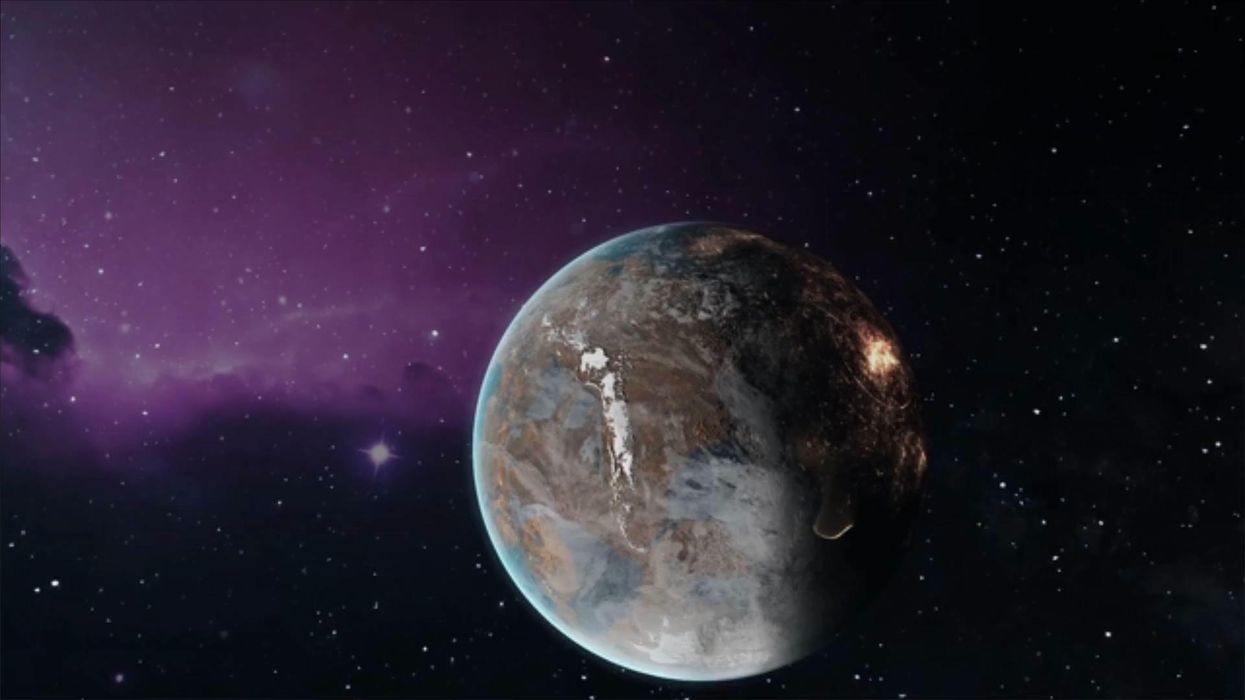Breanna Robinson
Oct 17, 2022
Super-Earth Exoplanets May Be Our Best Bet For Finding Life
Video
Scientists have discovered barium - the heaviest element in the periodic table - in the atmosphere of an exoplanet that could rain sapphires, rubies and iron.
The element's presence in the ultra-hot Jupiters WASP-76b and WASP-121b was discovered thanks to the help of a large telescope, which made the perplexing discovery of the high-value rain.
In a report from Live Science, it is believed that the exoplanet rains iron on WASP-76b and sapphires and rubies on WASP-121b, particularly at night.
Despite the discovery being a remarkable one, researchers are stumped by the discovery of barium as it is two and a half times heavier than iron.
So, they don't have a clue as to why the element exists so high up in these planets' atmospheres.
Tomás Azevedo Silva, who is the lead author of the study that made the jewel and iron discovery, said that it was "puzzling."
Sign upto our free Indy100 weekly newsletter
"The puzzling and counterintuitive part is: why is there such a heavy element in the upper layers of the atmosphere of these planets?" he said in a statement.
Olivier Demangeon, a researcher and co-author of the study, also shared that with the "high gravity of planets," it is expected that "heavy elements like barium quickly fall into the lower layers of the atmosphere."
With these statements, it's safe to say there's more work to be done when it comes to understanding the ins and outs of these planets, which exist very close to their stars.
For reference, they are even closer to their stars than Mercury is to the Sun.
WASP-121b is 855 light-years from Earth, while WASP-76b is 640 light-years away, so we won't be getting many jewels from these planets at this time.
The discovery of their atmospheres was made in Chile utilsing the European Southern Observatory's Very Large Telescope.
Innovative science allowed the researchers to pinpoint the element by studying the light of their respective stars.
Azevedo Silva further noted that the discovery was, to some degree, "accidental."
"We were not expecting or looking for barium in particular and had to cross-check that this was actually coming from the planet since it had never been seen in any exoplanet before."
Overall, future telescopes will be able to uncover more details within the atmospheric layers of exoplanets to highlight the mysteries of unusual worlds in the galaxy.
Have your say in our news democracy. Click the upvote icon at the top of the page to help raise this article through the indy100 rankings.
Top 100
The Conversation (0)














